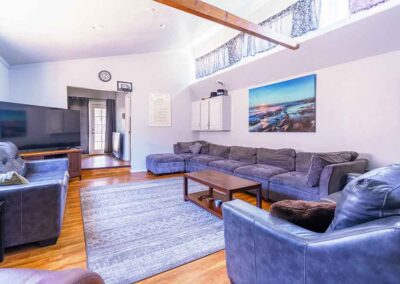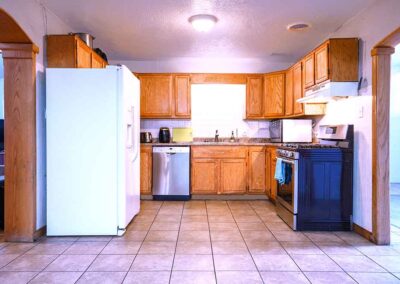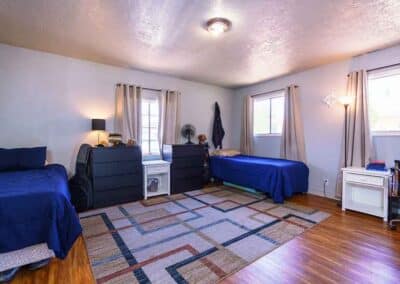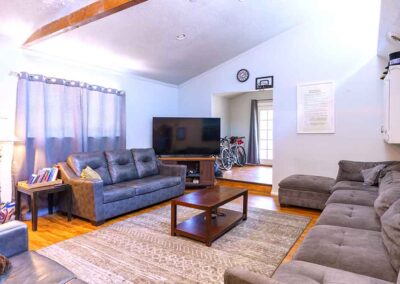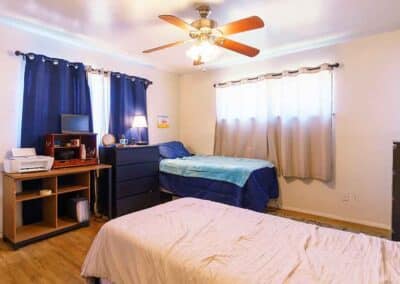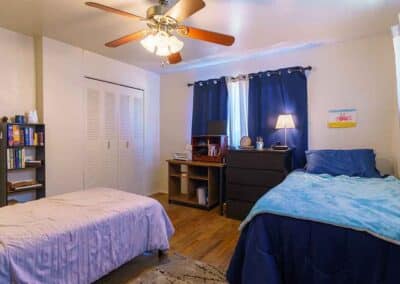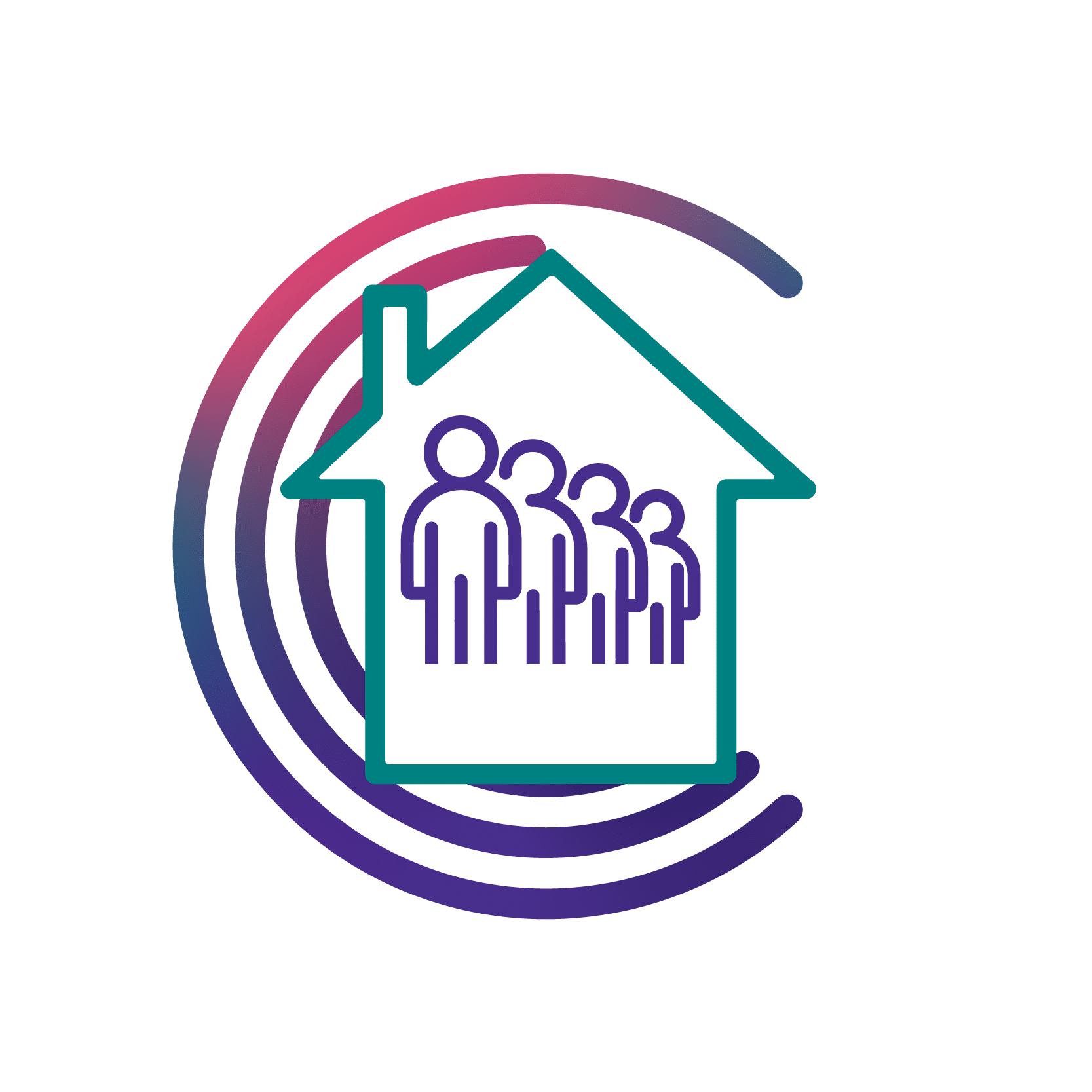
Sober Living
Albuquerque
Sober Living Housing
At Turning Point Recovery Center
At Turning Point Recovery Center, our Sober Living Housing program provides a structured, supportive, and substance-free living environment for individuals in recovery. This program is designed for those who have completed the initial phases of addiction treatment, such as detoxification or residential care and are ready to transition to a more independent lifestyle while still receiving necessary support. Recovery is a journey that doesn’t have to be taken alone. If you’re ready to take the next step in your recovery journey, contact us today to learn more about our Sober Living Housing options.
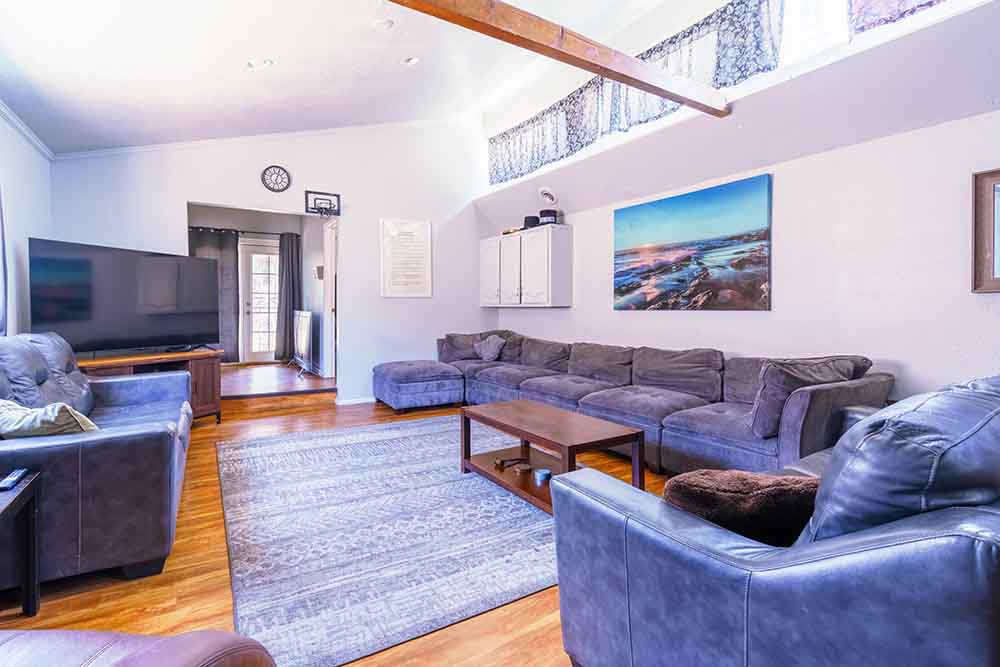
What To Expect At Our
Sober Living Housing
Turning Point’s Sober Living Housing provides structure and support as residents build a sustainable sober life. Living with people who share a commitment to sobriety provides camaraderie and mutual support crucial for long-term recovery. A live-in house manager and full-time peer mentor help each resident build and practice their program and ensure a healthy, structured, sober environment.
During your stay, you may continue your recovery through Turning Point’s Intensive Outpatient Program, and participate in local AA/NA meetings and other programs. Each person’s journey is unique, and we work with each individual to create a sober living plan that provides the best chance for long-term health and success.
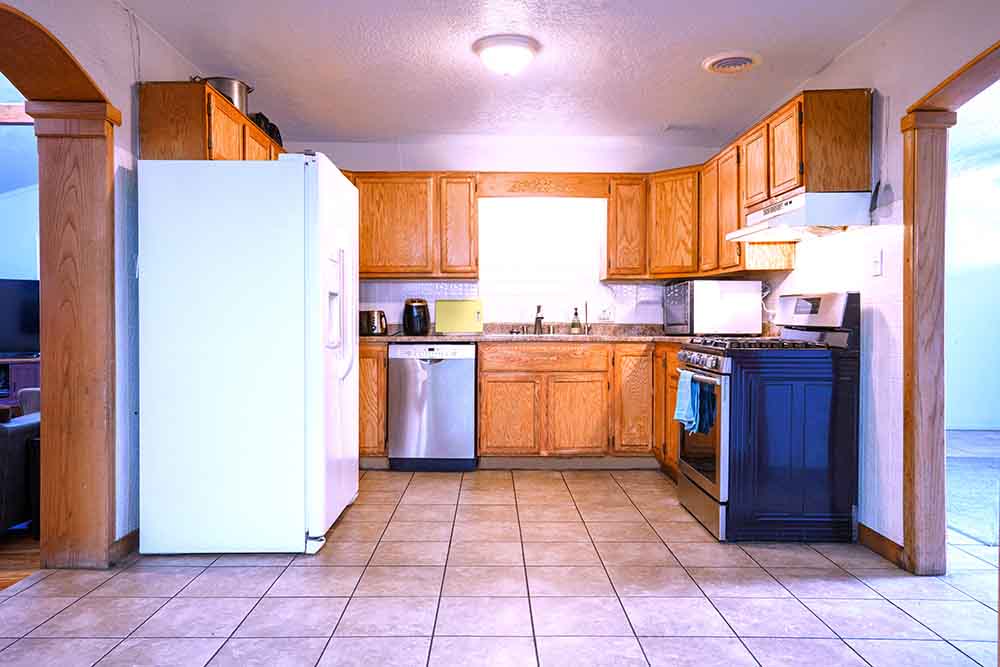
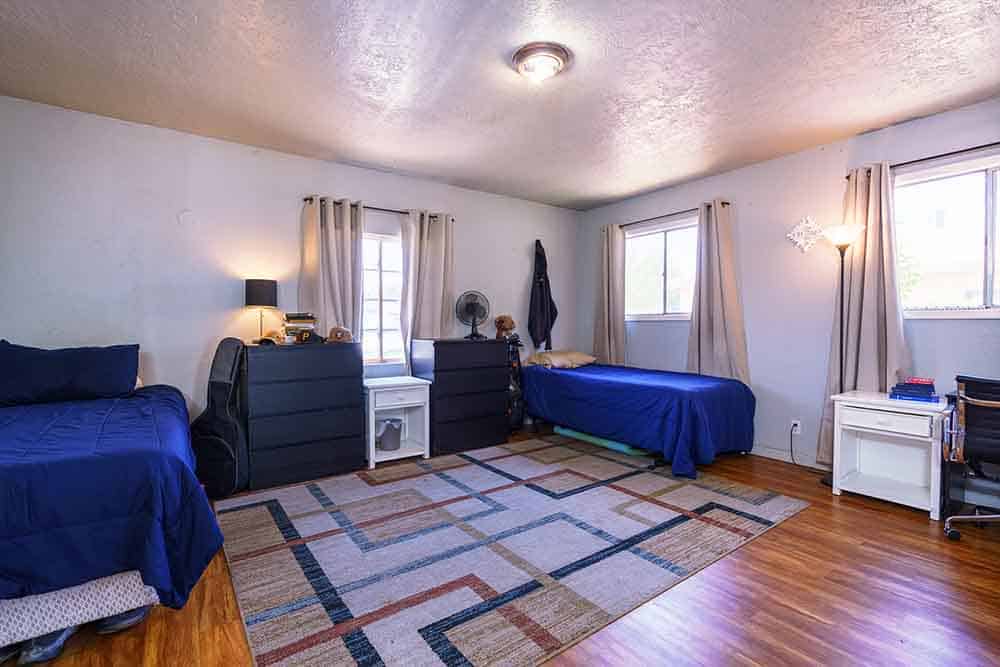
Key Features of Our Sober Living Housing Program
1
Safe and Supportive Environment
Residents live in a safe, substance-free home where they can focus on their recovery without the distractions and temptations that might exist in other environments. The house provides a sense of community, as residents live with others who share their commitment to sobriety.
2
Structured Living
Our recovery housing offers a structured daily routine that helps residents build and maintain a sober lifestyle. This structure is crucial during the transition from intensive treatment to independent living. The program includes regular check-ins, house meetings, and a set of house rules that residents must follow.
3
Live-in House Manager and Peer Mentorship
Each of our recovery homes is managed by a live-in house manager who ensures that the environment remains safe and supportive. Additionally, a full-time peer mentor is available to assist residents in building and practicing their recovery plans. This mentorship is vital for residents as they navigate the challenges of early sobriety.
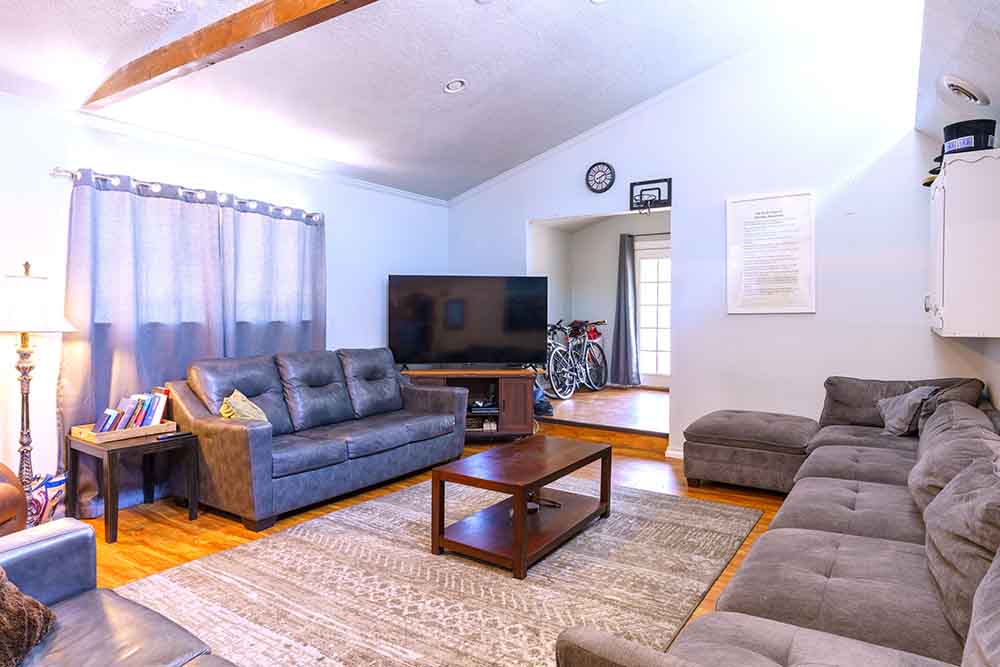
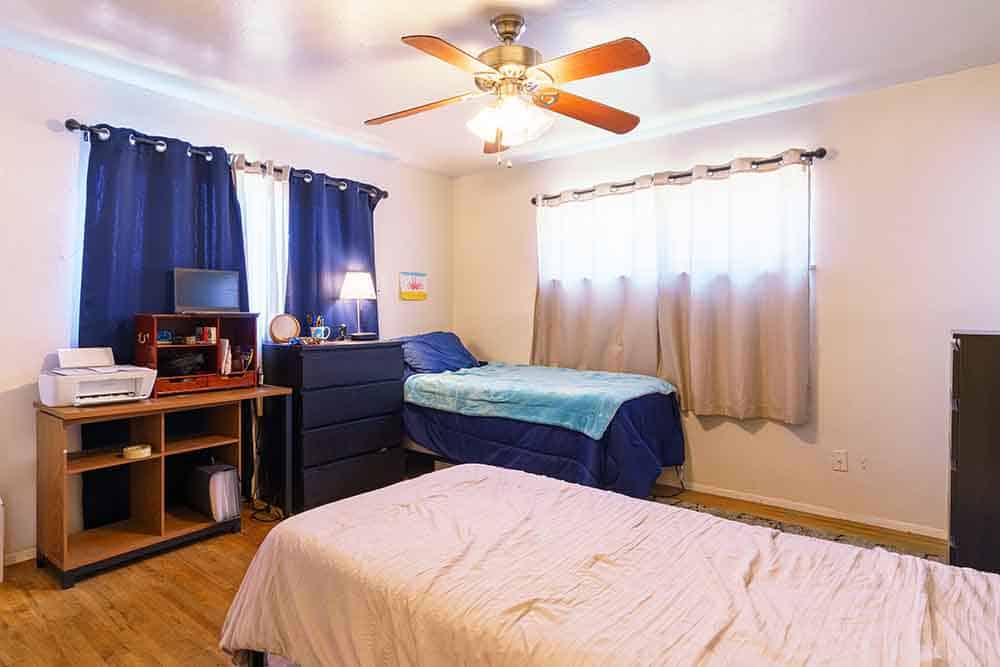
4
Ongoing Recovery Support
While living in our Sober Living Housing, residents are encouraged to continue their recovery through participation in our Intensive Outpatient Program (IOP), as well as local AA/NA meetings and other support groups. This ongoing support is essential for maintaining sobriety and developing a solid foundation for long-term recovery.
5
Personalized Sober Living Plans
Each resident’s journey is unique, and we work with individuals to create a personalized sober living plan that best supports their recovery goals. This plan may include specific recovery activities, wellness practices, and strategies for handling potential triggers or challenges.
What is Sober Living Housing?
Sober living housing, is a type of long-term transitional housing for individuals who are in the process of building a new, sober life. The key objective of our Sober Living Housing is to provide a safe and healthy living environment that supports continued recovery from substance use disorders. This type of housing is particularly beneficial if you do not have a stable or supportive home environment to return to after treatment.
Is Sober Living Housing Right for You?
Sober Living Housing is ideal for individuals who have completed initial treatment and are committed to maintaining their sobriety but need a supportive environment as they transition to independent living. It’s particularly beneficial for those who may not have a stable or sober living environment to return to after treatment.
Benefits of Sober Living Housing
Camaraderie and Mutual Support
Living with others who are also committed to sobriety provides a sense of camaraderie and mutual support that is crucial for long-term recovery. Residents can share experiences, offer encouragement, and hold each other accountable.
Continued Structure
The structured environment of our Sober Living Housing helps residents establish routines and habits that are conducive to a sober lifestyle. This structure is especially important for those who might struggle with the lack of routine in early recovery.
Access to Resources
Residents have access to a variety of resources, including peer support, mentorship, and connections to local recovery communities. These resources help individuals stay engaged in their recovery and continue to build the skills they need for independent living.
CALL NOW
505-217-1717
We’re here to help.
We’ll help you get on the best path forward in your recovery journey.
Most insurance plans, including Medicaid, are accepted.

